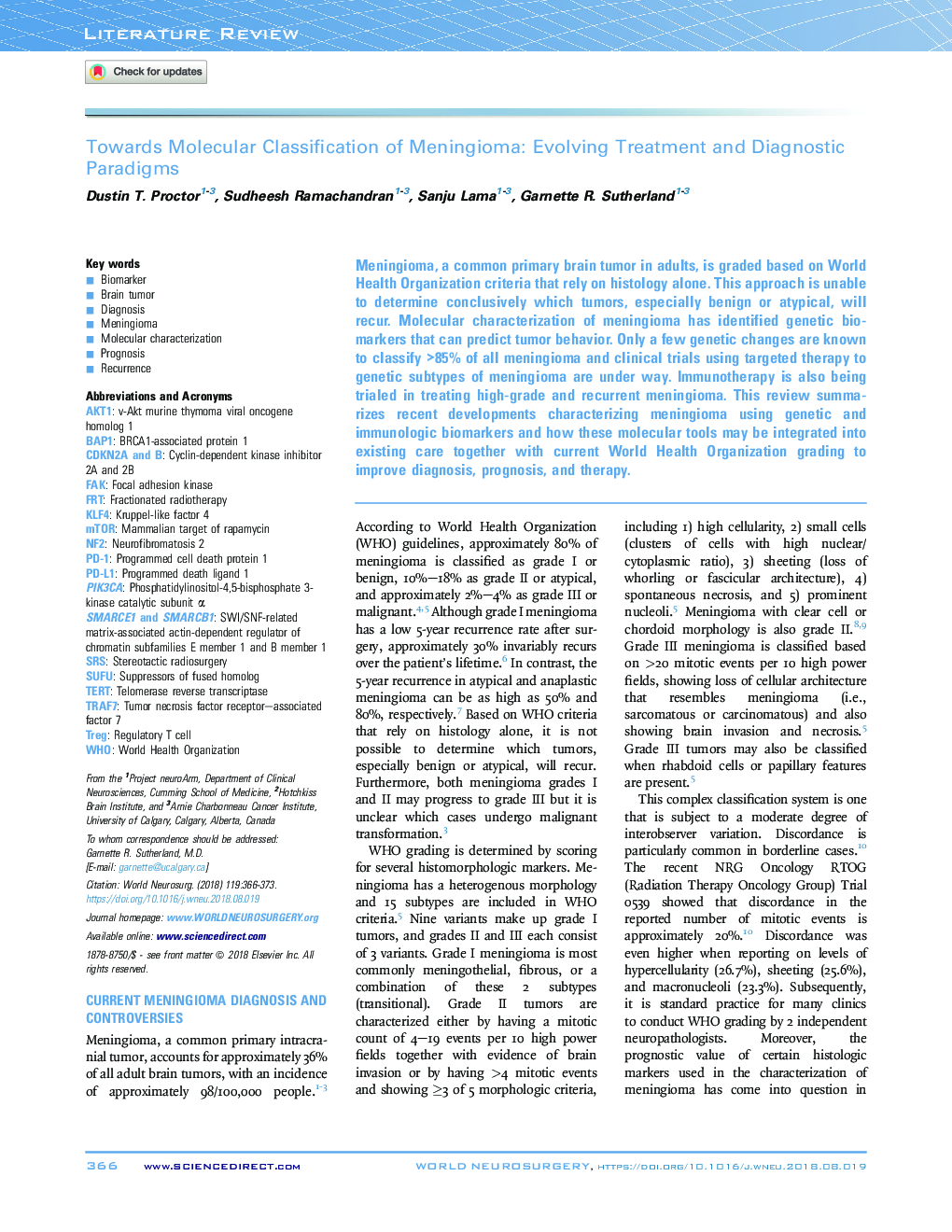| Article ID | Journal | Published Year | Pages | File Type |
|---|---|---|---|---|
| 10129574 | World Neurosurgery | 2018 | 8 Pages |
Abstract
Meningioma, a common primary brain tumor in adults, is graded based on World Health Organization criteria that rely on histology alone. This approach is unable to determine conclusively which tumors, especially benign or atypical, will recur. Molecular characterization of meningioma has identified genetic biomarkers that can predict tumor behavior. Only a few genetic changes are known to classify >85% of all meningioma and clinical trials using targeted therapy to genetic subtypes of meningioma are under way. Immunotherapy is also being trialed in treating high-grade and recurrent meningioma. This review summarizes recent developments characterizing meningioma using genetic and immunologic biomarkers and how these molecular tools may be integrated into existing care together with current World Health Organization grading to improve diagnosis, prognosis, and therapy.
Keywords
FRTAkt1TregSRSPIK3CASufuNF2FAKBAP1mTORPD-L1BRCA1-associated protein 1PD-1KLF4v-akt murine thymoma viral oncogene homolog 1BiomarkerTERTTelomerase reverse transcriptaseDiagnosisBrain tumorMolecular characterizationStereotactic radiosurgeryWorld Health OrganizationRegulatory T cellKrüppel-like factor 4RecurrenceProgrammed death ligand 1MeningiomaNeurofibromatosis 2mammalian target of rapamycinFractionated radiotherapyprogrammed cell death protein 1prognosisWHOfocal adhesion kinase
Related Topics
Life Sciences
Neuroscience
Neurology
Authors
Dustin T. Proctor, Sudheesh Ramachandran, Sanju Lama, Garnette R. Sutherland,
